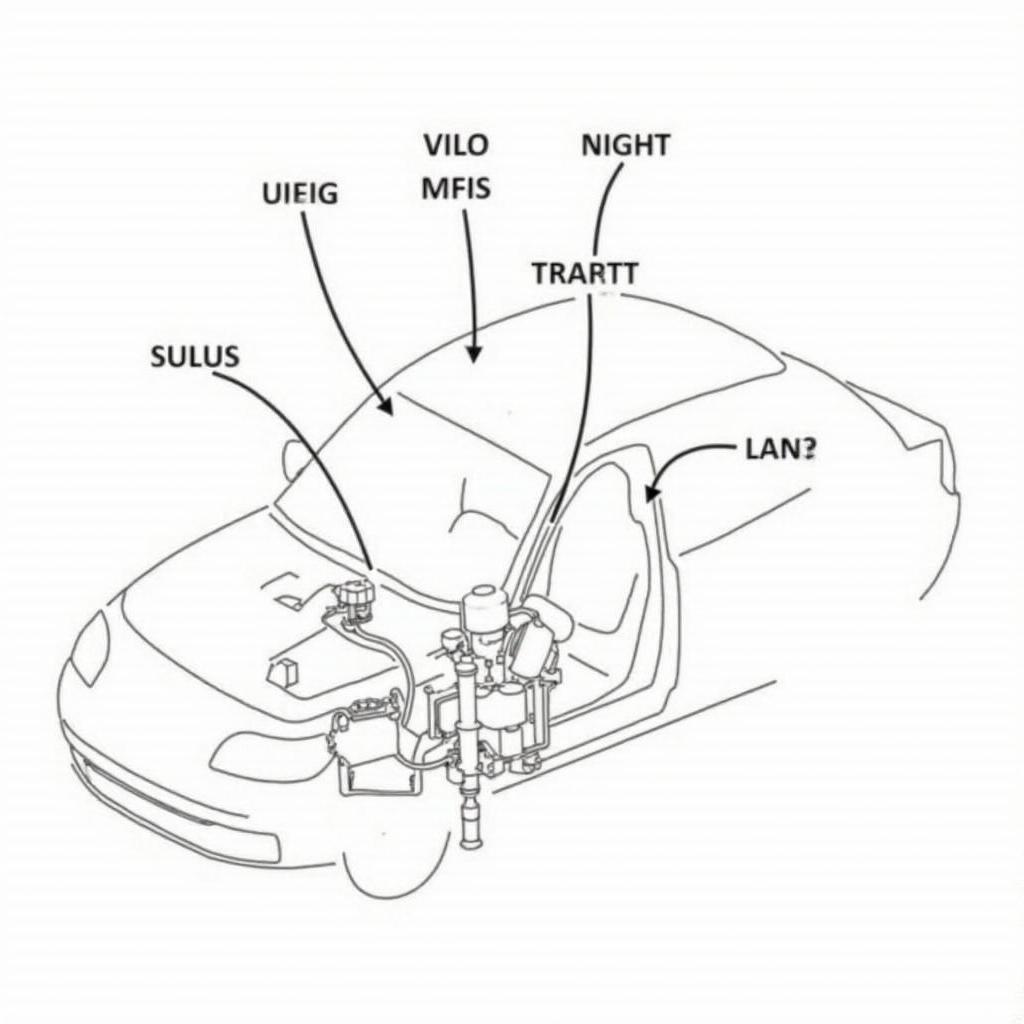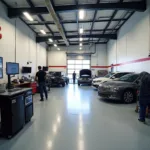Auto Service Gas encompasses a wide range of services related to your vehicle’s fuel system and engine performance. From routine maintenance like oil changes and filter replacements to more complex repairs like fuel injector cleaning and oxygen sensor replacement, ensuring your car is running efficiently and safely is paramount.
Understanding the Importance of Auto Service Gas
Your car’s engine is a complex system that relies on a precise mixture of air and fuel to operate smoothly. Over time, dirt, debris, and other contaminants can build up in your fuel system, hindering performance and potentially leading to costly repairs.
Regular auto service gas maintenance helps to:
- Improve fuel efficiency: A clean fuel system ensures optimal combustion, maximizing your miles per gallon.
- Enhance engine performance: Removing deposits and obstructions allows your engine to breathe better, resulting in smoother acceleration and increased power.
- Reduce emissions: A well-maintained fuel system minimizes harmful emissions, benefiting both the environment and your vehicle’s longevity.
- Prevent costly repairs: Addressing minor issues early on can prevent them from escalating into major problems that require expensive repairs.
 Car Fuel System Diagram
Car Fuel System Diagram
Common Auto Service Gas Services
Staying on top of regular maintenance is crucial. Here are some common auto service gas services that your vehicle may require:
- Oil Change: Regular oil changes lubricate moving engine parts, reducing friction and wear.
- Air Filter Replacement: The air filter prevents dust and debris from entering the engine, ensuring a clean air supply for combustion.
- Fuel Filter Replacement: This filter removes impurities from the fuel before it reaches the engine, preventing clogging and damage to the fuel injectors.
- Fuel Injector Cleaning: Over time, fuel injectors can become clogged with deposits, affecting fuel atomization and combustion. Cleaning or replacing them can restore optimal performance.
- Spark Plug Replacement: Spark plugs ignite the air-fuel mixture in the combustion chamber. Worn spark plugs can lead to misfires and reduced engine performance.
- Oxygen Sensor Replacement: The oxygen sensor monitors the amount of oxygen in the exhaust gases, providing feedback to the engine control unit (ECU) to adjust the air-fuel mixture for optimal combustion. A faulty oxygen sensor can significantly impact fuel efficiency and emissions.
 Mechanic Inspecting Car Engine
Mechanic Inspecting Car Engine
Choosing the Right Auto Service Gas Provider
Entrusting your vehicle to a reputable and qualified auto service gas provider is essential. Look for a provider with:
- Experienced Technicians: Skilled technicians with the knowledge and expertise to diagnose and repair your vehicle correctly.
- Advanced Diagnostic Equipment: Utilizing the latest diagnostic tools to accurately identify and address issues.
- Quality Parts and Fluids: Using high-quality parts and fluids that meet or exceed manufacturer specifications.
- Excellent Customer Service: Providing clear communication, transparent pricing, and a commitment to customer satisfaction.
 Modern Auto Service Center
Modern Auto Service Center
Conclusion
Regular auto service gas is essential for maintaining your vehicle’s performance, fuel efficiency, and longevity. By addressing issues promptly and staying on top of routine maintenance, you can enjoy a smooth and worry-free driving experience. Remember to consult your owner’s manual for recommended service intervals and choose a trusted auto service gas provider to keep your car running at its best.
FAQs
1. How often should I get an oil change?
Consult your owner’s manual for specific recommendations. However, a general rule of thumb is to get an oil change every 3,000 miles or every 3 months, whichever comes first.
2. What are the signs of a clogged fuel filter?
Common signs include difficulty starting the engine, rough idling, engine sputtering or hesitation, and reduced fuel efficiency.
3. How long does a fuel injector cleaning take?
The duration can vary depending on the severity of the buildup and the cleaning method used. However, it typically takes between 1-2 hours.
4. Why is my check engine light on?
A check engine light can illuminate for various reasons, from a loose gas cap to a more serious engine problem. It’s crucial to have the issue diagnosed by a qualified mechanic as soon as possible.
5. How can I improve my car’s fuel efficiency?
Ensure your tires are properly inflated, drive at moderate speeds, avoid aggressive acceleration and braking, remove unnecessary weight from your vehicle, and keep up with regular auto service gas maintenance.
Need Help? Contact Us!
For all your auto service gas needs, don’t hesitate to contact our expert team via WhatsApp: +1(641)206-8880 or Email: [email protected]. We offer 24/7 customer support to answer your questions and schedule appointments.


